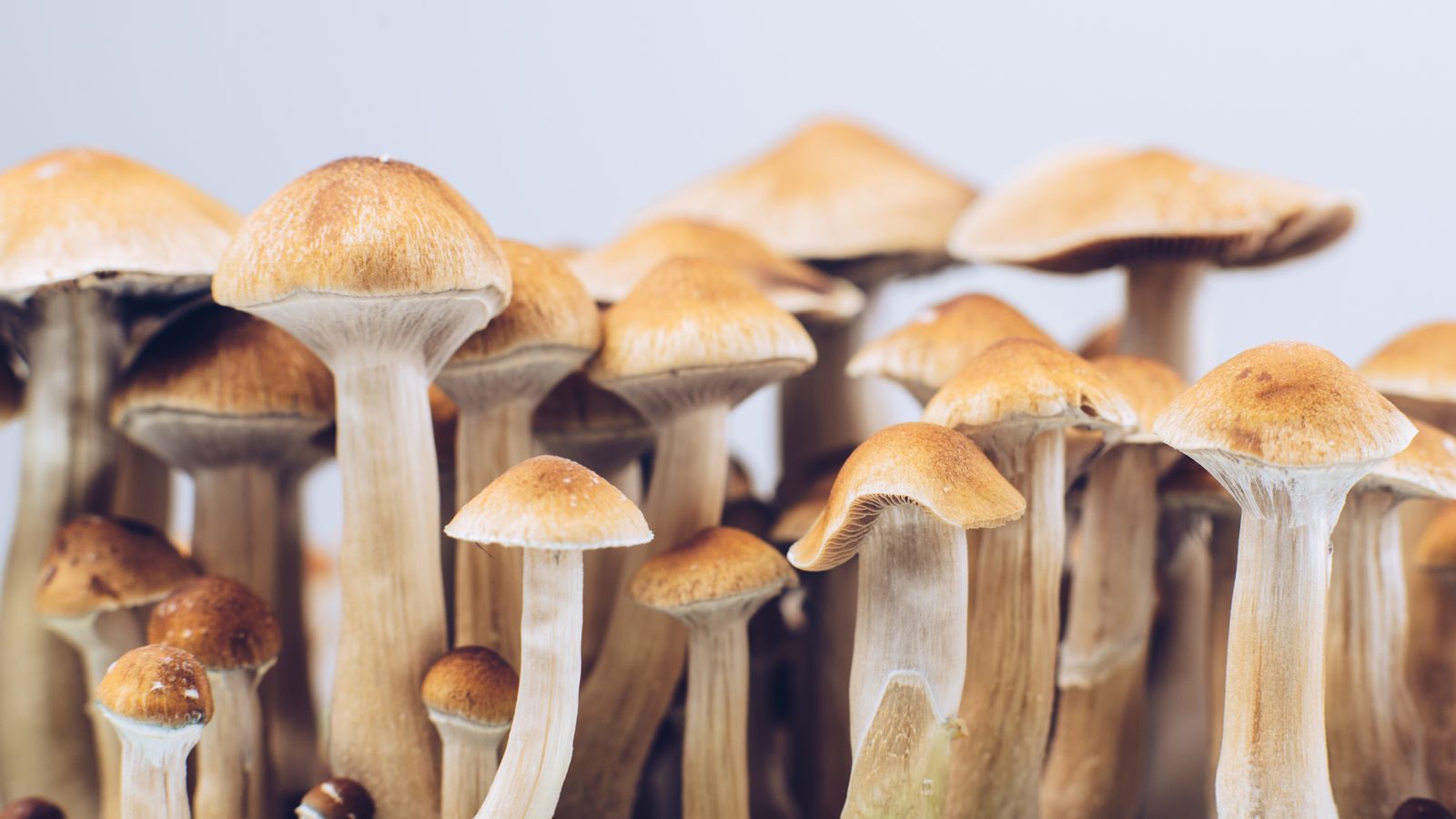The psychedelic component in magic mushrooms helps to open up depressed people’s brains and makes them less fixed in negative thinking patterns, a study suggests.
Researchers found psilocybin made the brain more flexible, even weeks after use.
They suggest the findings indicate psilocybin could be an alternative approach to depression treatments as it works differently from regular antidepressants.
Patterns of brain activity in depression can become rigid and restrained, they said, but psilocybin could help the brain break out of the rut in a way traditional therapies cannot.
Professor David Nutt, head of the Imperial Centre for Psychedelic Research, said: “These findings are important because for the first time we find that psilocybin works differently from conventional antidepressants – making the brain more flexible and fluid, and less entrenched in the negative thinking patterns associated with depression.
“This supports our initial predictions and confirms psilocybin could be a real alternative approach to depression treatments.”
The paper’s senior author Professor Robin Carhart-Harris, former head of the Imperial Centre for Psychedelic Research, now based at University of California, San Francisco, said: “The effect seen with psilocybin is consistent across two studies, related to people getting better, and was not seen with a conventional antidepressant.
Sir David Amess: Ali Harbi Ali found guilty of murdering MP and preparing acts of terrorism
Sir David Amess murder: How ‘fanatical terrorist’ carried out MP assassination – and his ‘warped’ motive for the attack
Footballer Ashley Cole tied up during violent robbery and threatened with having fingers cut off, court hears
“In previous studies we had seen a similar effect in the brain when people were scanned whilst on a psychedelic, but here we’re seeing it weeks after treatment for depression, which suggests a ‘carry over’ of the acute drug action.”
Psilocybin is one of several psychedelics being explored as a potential therapy for psychiatric disorders.
The latest findings are based on analysis of brain scans from around 60 people receiving treatment for depression, led by Imperial College London’s Centre for Psychedelic Research.
The results from two combined studies reveal people who responded to psilocybin-assisted therapy showed increased brain connectivity not just during their treatment but also up to three weeks afterwards.
The opening up effect was associated with people reporting improvements in their depression.
The researchers said similar changes in brain connectivity were not seen in those treated with a conventional antidepressant, escitalopram, suggesting the psychedelic works differently in treating depression.
The team said the findings, published in the journal Nature Medicine, are a promising advance for psilocybin therapy.
However, they said while the findings are encouraging, patients with depression should not attempt to self-medicate with psilocybin, as taking magic mushrooms or psilocybin in the absence of trial conditions may not have a positive outcome.






















